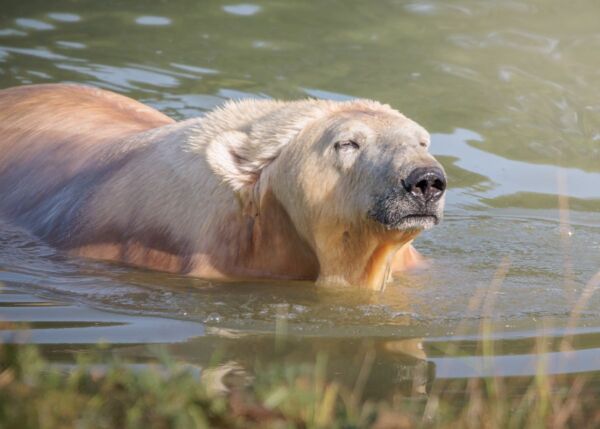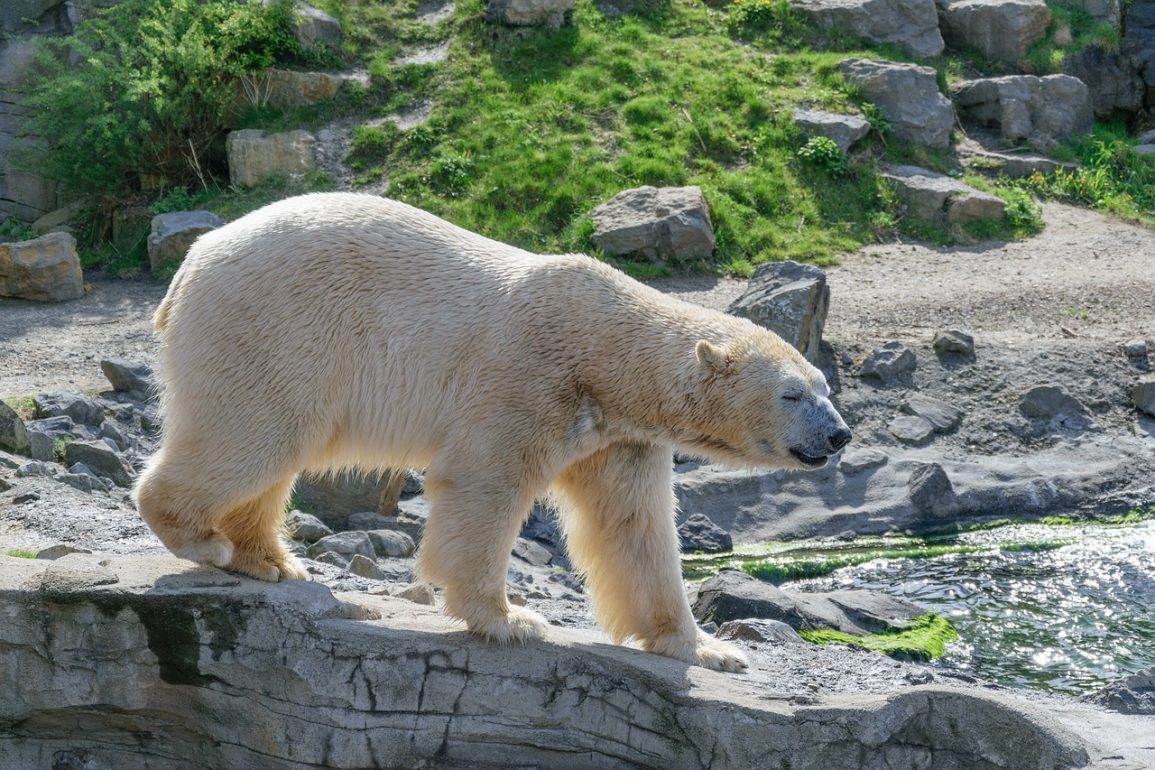In a surprising turn of events, polar bears have made a comeback in Britain, with four of these magnificent creatures now residing at Jimmy’s Farm, a wildlife park in Suffolk.
The sighting of these Arctic giants, visible from trains traveling between London and Ipswich, has captivated passengers, sparking conversations about their unexpected presence in the English countryside.
Historically, polar bears have long been kept in captivity across Europe, dating back to ancient times.
Yet, by the 1990s, growing concerns about animal welfare led to a decline in their numbers in British zoos, with only one remaining by the turn of the century.
However, in the last year, conservationist and farmer Jimmy Doherty has opened the largest polar bear enclosure in Europe, attracting significant attention and raising important questions about conservation strategies.
Doherty’s venture began as a childhood dream, nurtured by a passion for wildlife.
After starting his career in farming and building a successful business, he embraced the opportunity to rescue polar bears in need of a new home.

The bears at Jimmy’s Farm include Ewa, a former resident of Sweden’s Orsa Predator Park, who faced a grim fate if not rescued.
With a £1 million investment, Doherty constructed a spacious and enriching environment for the bears, which includes deep pools, natural woodland, and varied diets designed to promote their well-being.
Despite these efforts, the return of polar bears to Britain has sparked debate among conservationists.
Critics argue that, while the new enclosures are an improvement over traditional zoo conditions, they still fall short of providing the expansive habitats polar bears need to thrive.
Organizations like the Born Free Foundation assert that keeping polar bears in captivity fails to offer meaningful conservation benefits, especially as wild populations dwindle due to climate change and habitat loss.
Proponents of the captive breeding program highlight the importance of maintaining genetically diverse populations as a safeguard against extinction.
The European Endangered Species Programme aims to ensure that polar bears in captivity can potentially contribute to future conservation efforts.
As global temperatures rise and the effects of climate change threaten polar bear habitats in the Arctic, some experts predict an increase in climate refugees among the species.
Doherty’s initiative may serve as a crucial step in safeguarding the future of polar bears, but it raises important ethical considerations about the role of zoos in conservation.
As visitors flock to see these majestic animals in Suffolk, the broader implications of their captivity resonate: Can captive polar bears be part of a solution to a rapidly changing world, or do they merely reflect humanity’s struggle with the challenges of wildlife conservation?
The answer remains as complex as the creatures themselves, as Jimmy Doherty continues his commitment to championing both local farming and global conservation efforts.

